★★
“Weapons of mass seduction.”
 This has more than slight echoes of the Female Ninjas, Magic Chronicles series, sharing the feudal setting, along with similar… unconventional attack forms by the protagonists. That’s unsurprising, since both are apparently based on Ninja Tsukikagesho, by Yamada Futaro. And, just to confuse matters further, the IMDb states that part 6 of FMMC shares the title here. Whether this might be the IMDb getting confused, I can’t say. I wouldn’t blame them if so, because the entire plot here is more muddled than enlightening. It takes place in the 1730’s, when Shogun Yoshimune and his deputy, Muneharu, were struggling for control. As a way of fomenting dissent by embarrassing him, Muneharu drags out the Shogun’s former concubines; to stop this, Yoshimune sends a group of his top female ninjas, under Tsurugi (Abe), to kill the women before Munharu’s men can get to them, triggering a ninja war. Complicating matters, turns out one of the concubines may have had a bastard son by Yoshimune, and whoever gets proof of that lineage will really hold the whip hand.
This has more than slight echoes of the Female Ninjas, Magic Chronicles series, sharing the feudal setting, along with similar… unconventional attack forms by the protagonists. That’s unsurprising, since both are apparently based on Ninja Tsukikagesho, by Yamada Futaro. And, just to confuse matters further, the IMDb states that part 6 of FMMC shares the title here. Whether this might be the IMDb getting confused, I can’t say. I wouldn’t blame them if so, because the entire plot here is more muddled than enlightening. It takes place in the 1730’s, when Shogun Yoshimune and his deputy, Muneharu, were struggling for control. As a way of fomenting dissent by embarrassing him, Muneharu drags out the Shogun’s former concubines; to stop this, Yoshimune sends a group of his top female ninjas, under Tsurugi (Abe), to kill the women before Munharu’s men can get to them, triggering a ninja war. Complicating matters, turns out one of the concubines may have had a bastard son by Yoshimune, and whoever gets proof of that lineage will really hold the whip hand.
However, the script gets bogged down in murky shenanigans, with poor differentiation between too similar characters – not helped by people pretending to be other people on more than one occasion. It might sound bad to say this, but when it seems 90% the men have the same hairstyle, and 90% of the women have the same hairstyle… Well, I could have done with a scorecard, shall we say. Instead, save perhaps for Tsurugi, who does get painted with a bit more depth, the only way you can tell them apart is by the special magical attacks, the names of which are conveniently yelled out as part of their execution, and which are certainly the most memorable aspect of the film. This starts with – and I wrote these down to be sure I got them right – the “Ninja Snake Penetrator,” then proceeds through “Ninja Milk of Death,” “Icicle Sword” and the “Echo-blade Weasel Attack,” before climaxing [and I use the word advisedly] with the “Memento of the Full-bloom Lotus” – not quite as innocent as it sounds. However, the action sequences are generally forgettable, even including the flurry of second-tier digital effects unleashed as a result of the special attacks.
The plot certainly has its share of twists and turns, but I can’t say I was enthralled by many of them, and the end result just doesn’t gel into anything more than very sporadically interesting. Just as with FNMC, fifteen years earlier, this proves that you need more than marginally inventive magic to make for an entertaining movie. Maybe it helps to have read the source novel, but I can’t say there’s enough here to make me put in any effort to that end.
Dir: Kôsuke Hishinuma
Star: Mari Abe, Shô Nishino, Yuri Morishita, Rika Miyama





 While the film itself is not that good, it did introduce me to a new action heroine of history: Olga of Kiev, who seems to have been a serious bad-ass, even by the high standards of European bad-asses of the time. There’s some suggestion she was of Viking extraction, with her name originally Helga, and that would certainly make sense. She married Igor of Kiev around 903, and after his death, ruled the state of Kievan Rus’ for 18 years, in the name of her young son, Svyatoslav. The Russian Primary Chronicle
While the film itself is not that good, it did introduce me to a new action heroine of history: Olga of Kiev, who seems to have been a serious bad-ass, even by the high standards of European bad-asses of the time. There’s some suggestion she was of Viking extraction, with her name originally Helga, and that would certainly make sense. She married Igor of Kiev around 903, and after his death, ruled the state of Kievan Rus’ for 18 years, in the name of her young son, Svyatoslav. The Russian Primary Chronicle  The tenth wedding anniversary of Donna Costanza (Alfonsi) in New Jersey is rudely interrupted when her husband is gunned down during the party. For he was a Mafia boss who, it appears, had crossed the wrong person. Before dying, he whispers to his wife, “Giarratana from Palermo,” apparently fingering the man behind the hit. Seeking revenge, Madam Costanza flies to Sicily, and meets up with a loyal family employee, soliciting his help to plan the death of the local boss fingered by her husband’s last words. But things are considerably more murky than they seem, as Costanza has wandered into the middle of some shenanigans involving a corrupt local official, a police investigation and an arms deal, which are all leaving a trail of corpses in their wake. And someone wants Donna to join the dead bodies, first trying to blow up her plane, then sabotaging the brakes on her car. When a supposedly blind man guns down her contact in the street, it’s getting too warm for comfort.
The tenth wedding anniversary of Donna Costanza (Alfonsi) in New Jersey is rudely interrupted when her husband is gunned down during the party. For he was a Mafia boss who, it appears, had crossed the wrong person. Before dying, he whispers to his wife, “Giarratana from Palermo,” apparently fingering the man behind the hit. Seeking revenge, Madam Costanza flies to Sicily, and meets up with a loyal family employee, soliciting his help to plan the death of the local boss fingered by her husband’s last words. But things are considerably more murky than they seem, as Costanza has wandered into the middle of some shenanigans involving a corrupt local official, a police investigation and an arms deal, which are all leaving a trail of corpses in their wake. And someone wants Donna to join the dead bodies, first trying to blow up her plane, then sabotaging the brakes on her car. When a supposedly blind man guns down her contact in the street, it’s getting too warm for comfort.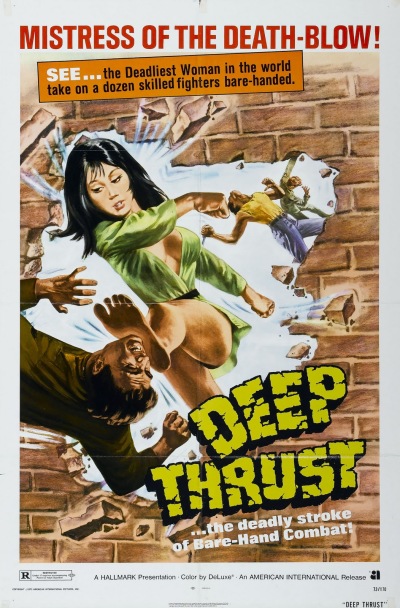
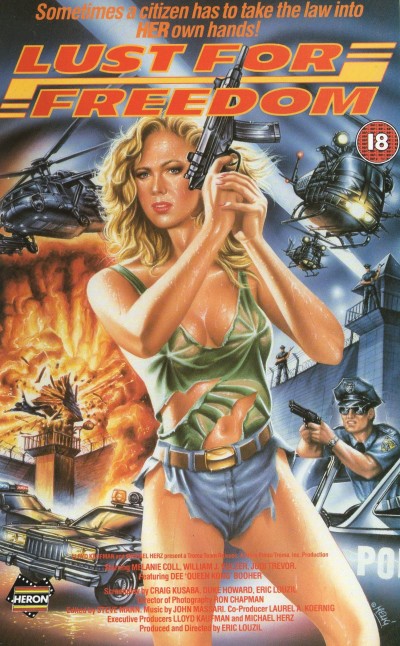 Undercover cop Gillian Kaites (Coll) needs a break from the force after an operation goes wrong, with her boyfriend and fellow cop being gunned down in front of her. She goes on a road-trip, but has the misfortune to go through a town where the local cops are in league with the prison to arrest fetching young ladies on fabricated charges. They can then be shipped off to jail and… Well, the script is kinda vague on the specific purpose behind this, clearly quite significant, operation involving a large number of people and no small effort. Let’s give them the benefit of the doubt, and presume the ends, whatever they may be, justify the means. Gillian ends up framed for drug possession, and has to survive against brutal guards, brutal fellow prisoners and matron Mrs. Puskar (Trevor) – in the interests of sustaining suspense, I will avoid revealing whether or not she is brutal. Eventually, the brutality on display becomes too much, and she leads the inmates in a revolt against their cruel captors. In other words: women in prison plot 3A.
Undercover cop Gillian Kaites (Coll) needs a break from the force after an operation goes wrong, with her boyfriend and fellow cop being gunned down in front of her. She goes on a road-trip, but has the misfortune to go through a town where the local cops are in league with the prison to arrest fetching young ladies on fabricated charges. They can then be shipped off to jail and… Well, the script is kinda vague on the specific purpose behind this, clearly quite significant, operation involving a large number of people and no small effort. Let’s give them the benefit of the doubt, and presume the ends, whatever they may be, justify the means. Gillian ends up framed for drug possession, and has to survive against brutal guards, brutal fellow prisoners and matron Mrs. Puskar (Trevor) – in the interests of sustaining suspense, I will avoid revealing whether or not she is brutal. Eventually, the brutality on display becomes too much, and she leads the inmates in a revolt against their cruel captors. In other words: women in prison plot 3A.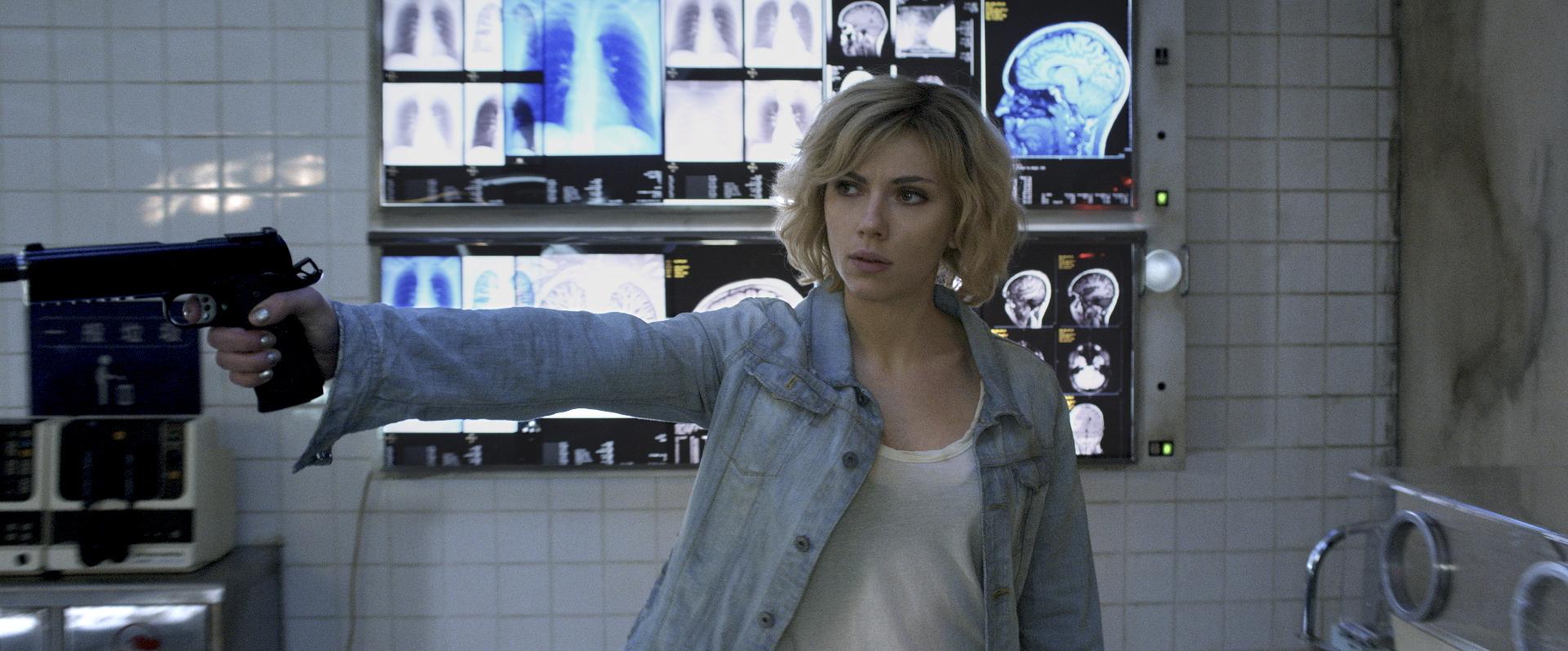


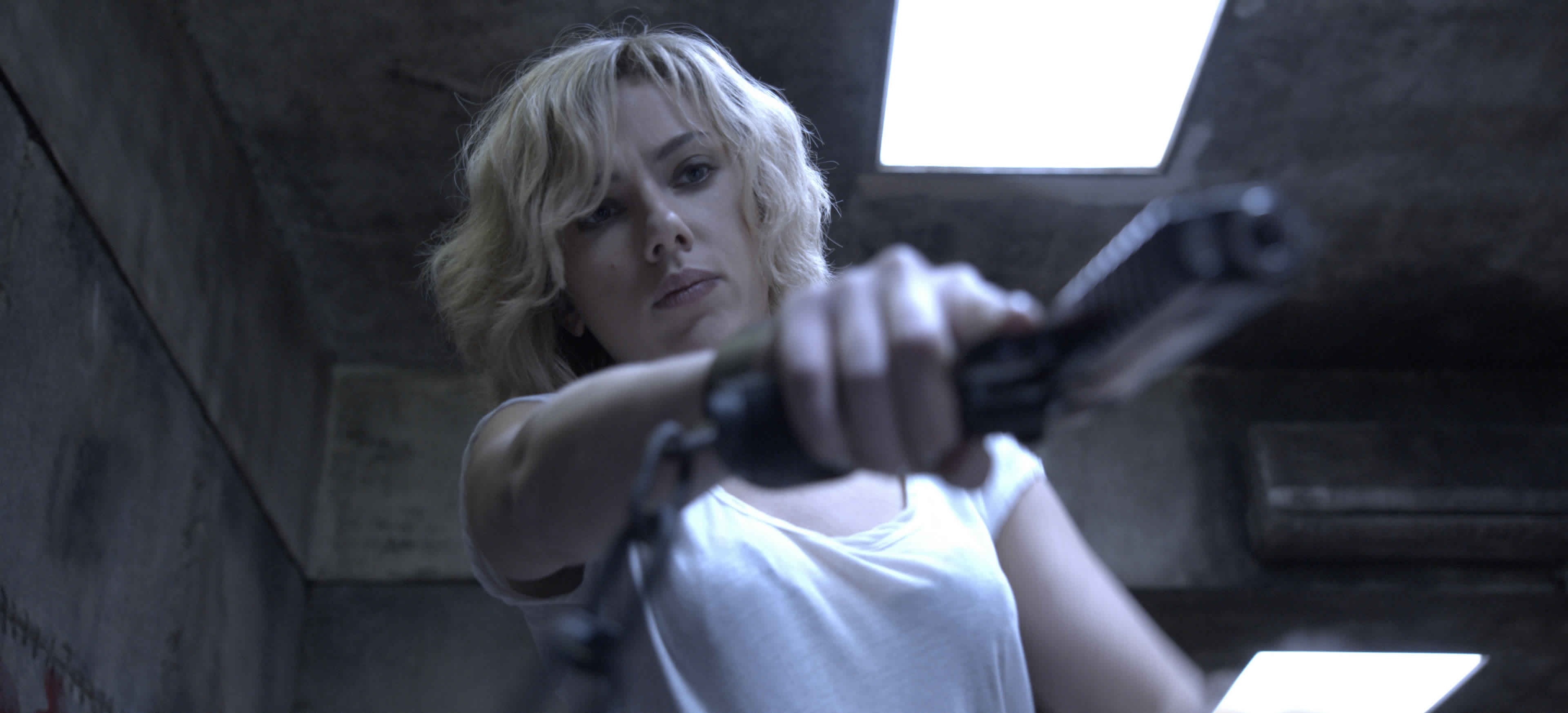


 This obscurist Hong Kong revenge flick is a little different, mainly because the couple at the heart of the film are lesbians. Admittedly, this is largely for crass, exploitative purposes: the dialogue quoted above, pretty much confirms the makers want to tut-tut disapprovingly at the love that dare not speak its name, while simultaneously depicting it in salacious detail. Such is the nature of Cat III in the mid-90’s, this seems to want to be something like Naked Killer, released two years earlier to this in 1992, but just doesn’t have the desire to go for the full delirious insanity, necessary to pull the concept off. Particularly in the middle section, it drags horribly, with the story diverting off into the usual triad drug-smuggling, betrayal and cop investigations that we’ve seen a million times before.
This obscurist Hong Kong revenge flick is a little different, mainly because the couple at the heart of the film are lesbians. Admittedly, this is largely for crass, exploitative purposes: the dialogue quoted above, pretty much confirms the makers want to tut-tut disapprovingly at the love that dare not speak its name, while simultaneously depicting it in salacious detail. Such is the nature of Cat III in the mid-90’s, this seems to want to be something like Naked Killer, released two years earlier to this in 1992, but just doesn’t have the desire to go for the full delirious insanity, necessary to pull the concept off. Particularly in the middle section, it drags horribly, with the story diverting off into the usual triad drug-smuggling, betrayal and cop investigations that we’ve seen a million times before.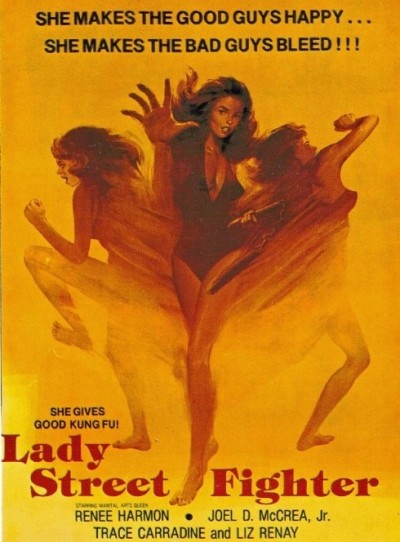 Let me start off by repeating myself, in case you missed it, because I want to be absolutely clear on these points. This is legitimately terrible. This is among the worst films I’ve ever seen. And I speak as someone with over 25 years of watching really bad films. That half-star is solely for amusement to be gathered from how bad this is, because there are basically no redeeming features here at all, and I speak as someone who will tolerate almost any pile of shit with an action heroine in it. This movie is largely responsible for the addition of the word “almost” to the previous sentence, despite being mercifully brief at a mere 72 minutes in length. The half-star is simply because I did reach the end without gnawing a limb off to escape. I think I deserve some kind of Internet prize for that.
Let me start off by repeating myself, in case you missed it, because I want to be absolutely clear on these points. This is legitimately terrible. This is among the worst films I’ve ever seen. And I speak as someone with over 25 years of watching really bad films. That half-star is solely for amusement to be gathered from how bad this is, because there are basically no redeeming features here at all, and I speak as someone who will tolerate almost any pile of shit with an action heroine in it. This movie is largely responsible for the addition of the word “almost” to the previous sentence, despite being mercifully brief at a mere 72 minutes in length. The half-star is simply because I did reach the end without gnawing a limb off to escape. I think I deserve some kind of Internet prize for that.